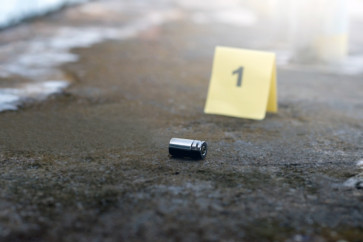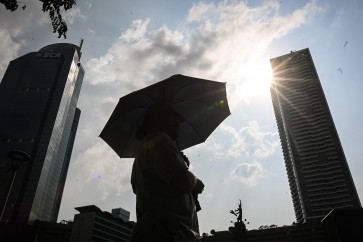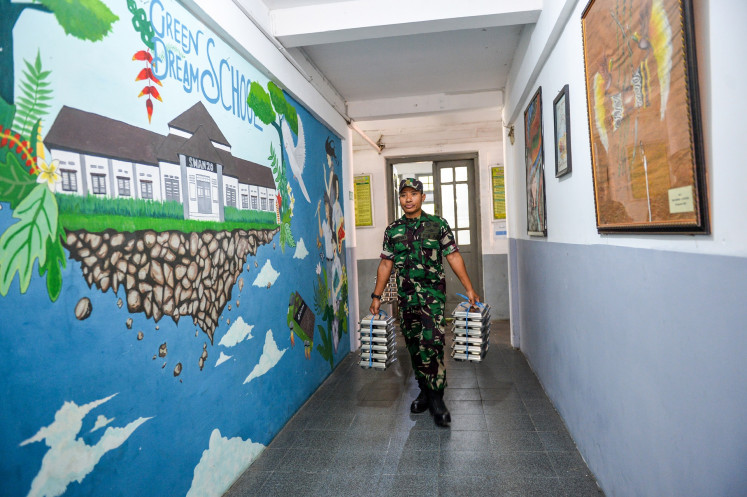Popular Reads
Top Results
Can't find what you're looking for?
View all search resultsPopular Reads
Top Results
Can't find what you're looking for?
View all search resultsCoal-fired power plant ‘threatens Bali tourism’
Lovina Beach in Buleleng regency, Bali, is best known for dolphin tours where tourists can get on a boat and watch the mammals swim nearby
Change text size
Gift Premium Articles
to Anyone
L
ovina Beach in Buleleng regency, Bali, is best known for dolphin tours where tourists can get on a boat and watch the mammals swim nearby.
However, environmentalists have warned that local tourist attractions might be in jeopardy following the planned expansion of a coal-fired power plant in the area.
The Celukan Bawang coal-fired power plant — developed by China Huadian Engineering Co. Ltd., Singapore-based Merryline International Pte. Ltd. and PT General Energy Indonesia — is located about 20 kilometers west of Lovina Beach.
The companies, having pocketed permits from the Bali administration, plan to boost the current 426 megawatts of electricity to 660 MW to secure the electricity supply in Bali, which relies heavily on Java-based power plants.
The plan has met with opposition from locals and environmentalists alike, with Greenpeace Indonesia predicting the expansion would threaten the ecosystem.
Should the expansion go ahead, the group warned that it could cause air pollution, including particle pollution, which is better known as PM 2.5.
It is a tiny carcinogenic particle deemed small enough to enter the bloodstream and cause various diseases, including asthma and heart illness.
Greenpeace senior coal campaigner and air pollution researcher Lauri Myllyvirta said air pollution posed a threat to Bali residents because pollutants could be carried by the wind to the entire island.
Heavy metals also posed a risk to residents and marine animals, including dolphins in the waters around Lovina Beach.
Sonia Umar Buftheim, a researcher at non-profit group Bali Fokus, said mercury produced by coal combustion at the power plant could spread on land and in water, causing illnesses in dolphins, which would prompt them to leave their habitat.
Pollution from the power plant could also affect the West Bali National Park, the home of several endemic animals, such as the endangered Jalak Bali bird, she added.
Business players have also lambasted the plan, saying that pollution could put the resort island’s tourism business in jeopardy.
“Clean energy and sustainability are among requirements for quality tourism. Coal, one of the non-renewable energy sources, has been avoided by developed countries.
“Why are we still using it?” Association of Indonesia Tours and Travel (ASITA) vice president Bagus Sudibya told The Jakarta Post recently.
As electricity supplies play a pivotal role in supporting tourism, he urged stakeholders to start investing in the development of renewable energy on the island to support sustainable tourism.
PT General Energy Bali, which operates Celukan Bawang, denied the allegations.
The company’s general affairs manager, Putu Singyen, said the first phase of the power plant’s operation, which began in 2015, had not caused any damage to the environment.
The company, he added, had been following every government regulation, including the ones related to the environment, which had been audited by state-owned surveyor PT Sucofindo as the third party auditor.
“I’m also a Buleleng resident and I don’t want the environment to be damaged. Everything is fine,” Putu said.
The expansion, he added, would help Bali to be electricity independent.
Bali has suffered several blackouts emanating from Java-based electricity suppliers, which is hampering businesses and investments.
In January, three locals and Greenpeace Indonesia filed a lawsuit against the Bali administration to contest the expansion plan at the Denpasar State Administrative Court.
The trial is ongoing.










